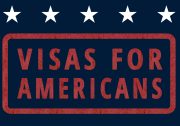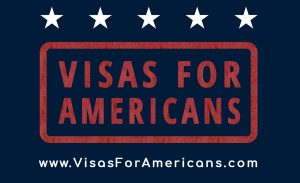Anyone who wants to visit Russia from most places in the world will need a visa to enter the country. There are a few countries that have visa exemptions; we have a list here of those who can enter Russia without a visa. If you are not from one of these places, you will need a visa, but you will also need to know what kind of visa you need to have depending on what kind of trip you are planning to make. There are seven basic types of visas for entry into Russia, these are Private, Tourist, Work, Educational, Humanitarian, and Business. The process for procuring any of these visas is relatively similar but there are small differences that are required for each. Every applicant needs to have their original signed passport, a copy of the signed passport, and the visa application that has been filled out online and printed.
A private visa is for anyone who is intending to go to Russia to visit and stay with a family member or friend. In order to acquire a private visa, the visa applicant must have a private invitation that has the full name, date of birth, citizenship, sex, passport number, address of registration, and actual address of the hosting resident. This invitation is also required to have the full name and/or other names used in the past, date of birth, citizenship, sex, passport number, multiplicity (how many times you can enter the country), the purpose of travel, the requested period of entry, the location of intended residence of the visa applicant while in Russia, and the cities that are to be visited. This invitation must be notarized. If it is notarized in the United States, a copy of the passport and registration page of the passport of the individual inviting the applicant to Russia must be included with the application documents.
Educational visas, also known as student visas, require an invitation that is issued by the Federal Migration Service (FMS) in Russia upon application from the educational institution. Student visas are different from the other types of visas in that they do not include an exit visa, but require a separate application for one that must be filed with the proper Russian authorities. Student visas usually have a shirt validity but the can be extended all the time by the university. As long as the university files extensions with the proper authorities in a timely manner, there should be no issues with the length of stay in Russia. Just be aware that is illegal to work in Russia after entering the country under a student visa.
Work visas can be hard to obtain for Russia because there are quotas on how many work invitations may be issued to foreigners to enter Russia in order to work. This visa allows you to stay as long as you need in Russia, unlike a business visa. If you need to stay in Russia for more than 90 out of 180 days and be officially employed, a work visa is the only way to do so. To obtain a work visa, you have to have an employer who is willing to get a work permit and write an invitation letter for you. These documents are required for the application process.
Business visas are for trips that are of a professional nature and are used to do business or have a commercial purpose. When applying for this visa you must have an official invitation from the Federal Migration Service or Ministry of Foreign Affairs. These visas can be issued for double or single entry for up to 90 days, or for multiple entries for up to one year, with exceptions for countries with bilateral agreements. US citizens may apply for a three-year multi-entry business visa. This three year multi-entry option is recommended for US citizens applying for a business visa regardless of entry and exit dates, number of entries, or period of stay indicated on this invitation. When applying just ensure that the dates indicate the full three-year period as the length of stay in the Russian Federation when filing out the application.
Humanitarian visas are for those who are intending to visit Russia for cultural or political exchange, sports events, scientific or technical purposes, religious purposes or missionary programs, charity events and organizations, or humanitarian relief. When applying for this visa, you must have an official invitation from the Federal Migration Service of the Russian Federation, which has been applied for by the inviting organization. The validity periods are similar to that of the business visa, and it is again recommended that US citizens apply for the three-year multi-entry option. A multi-entry one year visa is only valid for a length of stay of 90 days out of 180 days. A three-year multi-entry visa is only valid for a 6-month stay per entry.
Tourist visas are the most common type of visa issued and require a letter of invitation from a Russian organization such as a hotel or tour company. Tourist visas may also be issued for short-term business exchange, medical consultations, or participating in exhibitions or auctions. US citizens are able to obtain a 3-year multi-entry tourist visa instead of just the 30 day single or double entry visa. The three-year option again is the recommended option, regardless of the dates or number of entries indicated on the invitation. If you do obtain a single or double entry visa, the maximum length of stay in Russia is 30 days.

